Day in My Life Presenting Undergraduate Research as a UNH Student
Are you wondering what a day in the life of a UNH student looks like? Welcome back to our Day in the Life of a UNH Wildcat blog series, where we put the spotlight on students from different academic majors and class years.
The UNH Undergraduate Research Conference is an annual conference on our campus where undergraduates of all majors and class years present their research. At UNH, it's easy to get started with research as an undergraduate, thanks to resources like our Hamel Center for Undergraduate Research and many opportunities to receive funding for research projects.
Follow along as Amelea Hauer '25, an Earth sciences: oceanography major, walks you through a day in her life presenting at the 2025 Undergraduate Research Conference here at UNH.
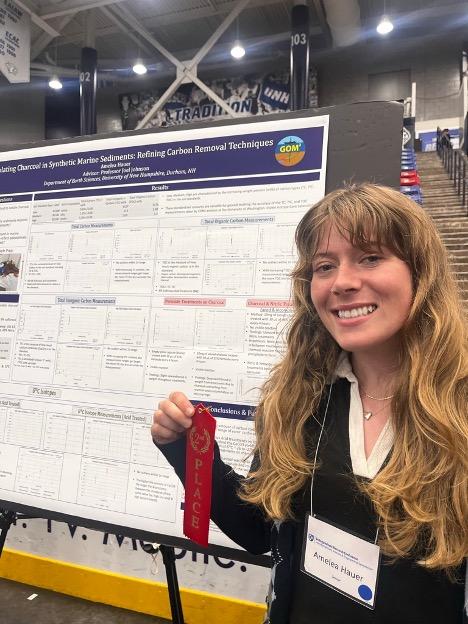
Me in front of my poster with my second-place ribbon; the blue dot on my name tag represents that I will be attending graduate school
Morning
6:30 a.m.
I wake up early for the Undergraduate Research Conference (URC). First, I pick out my attire for the day: a collared shirt, cardigan, corduroy pants, and black boots. I go for a look that's both presentable and academic to match the atmosphere of the URC. Next, I brush my teeth and make breakfast, which consists of yogurt, granola, an orange, and some coffee. Then, I am out the door.
7:30 a.m.
I bike to campus and head into James Hall, specifically the sedimentology wet lab, where I conducted all the research for the URC and my senior thesis. I feel like the lab is the place to get me in the right mindset to practice my oral presentation for the upcoming judging and the shorter pitches I will give to those who attend my poster presentation during the public hours.
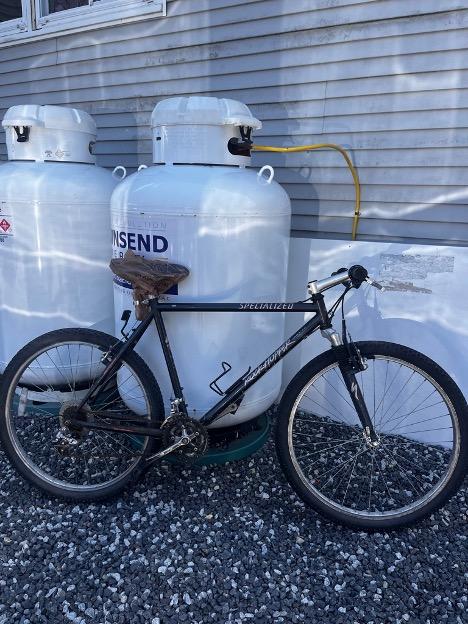
My commuter bike that I ride to campus daily
8:40 a.m.
I bike over to the URC at the Whittemore Center Arena. I sign in, get my name tag, and head down to my poster. I briefly run through my poster one last time and then wait patiently for the judges to arrive.
9 a.m.
I present my project, titled, "Isolating Charcoal in Synthetic Marine Sediments: Refining Carbon Removal Techniques," and answer the questions presented to me by the judges. I consider it a success since I feel confident in my scientific story and the ability to answer the questions.
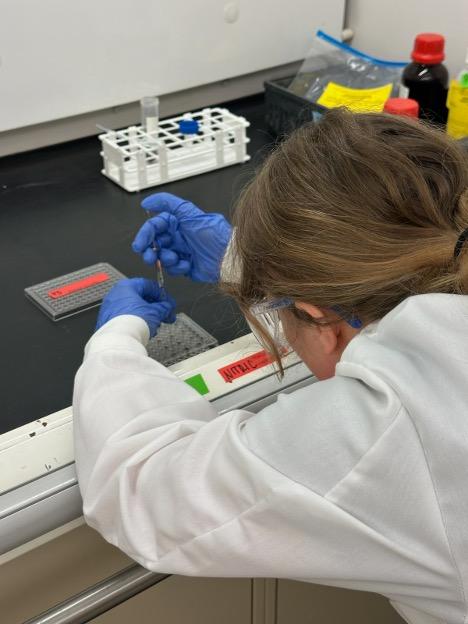
Me adding acid to my samples in the sedimentology wet lab
9:30 a.m.
We are told there will be a second round of judging for those who are chosen to be in the top three, so we await the news and chat amongst ourselves for the time being. We converse about our projects, our upcoming futures, and the pros and cons of our presentations.
10:30 a.m.
I am told I made it into the next round of judging, along with my friends Avery Wilson and Jordan Christian. I have five minutes to review my poster before the next judged talk, which is quite nerve-wracking but exciting.
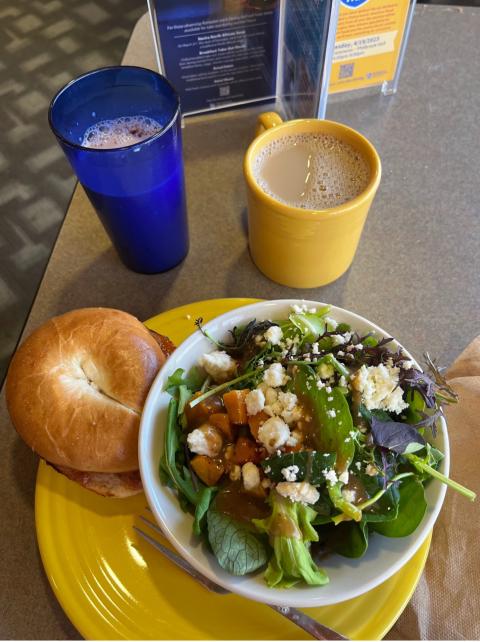
My lunch at Holloway Commons Dining Hall
11 a.m.
I walk around the posters and chat with some of my friends on their topics. Some of the posters I look at are Will Stark’s group poster on "Modeling PFAS in NH Background Soils" and Roger Anderson’s group poster on "Whale Safe Mooring Lines." I have a great time exchanging scientific conversations with those outside of the field of Earth sciences and seeing the work others are doing.
Afternoon
12 p.m.
I take a break for lunch. I leave the URC and go over to Holloway Commons Dining Hall to eat.
12:30 p.m.
It's now time for the URC awards, where the top groups receive acknowledgment for their hard work and notable presentations. Personally, it seems almost impossible to me that the judges had to choose the winners, since all the students did remarkable work. Overall, I felt confident in my presentation and truly enjoyed conveying my results to the judges, and that must have translated, since I received second place in the Earth sciences category, with Avery Wilson in first with her impressive poster and talk on "Analyzing Seasonal Wind Trends and Climate Change Impacts Along the East Coast of the United States (1990-2022)."
1 p.m.
It is now time for public hours for the URC, where students, professors and the public walk around and stop and ask questions of the presenters. This is where my shorter summarized presentation pitch comes in handy. This is my favorite part because it is more laid back and open-ended; those who stop by always have new perspectives on the topic and can provide crucial advice.
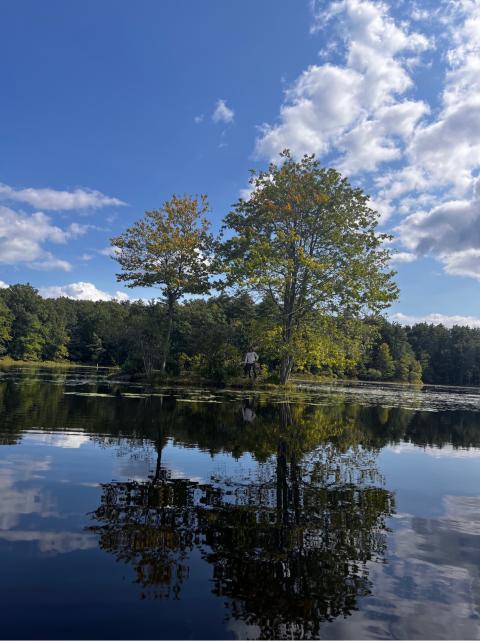
The pond I visited after the Undergraduate Research Conference
3:30 p.m.
The URC has ended, and we roll up our posters to finish off the long day of science … that is, until the pondering of all the new questions sets in and new ideas emerge, but that is for another day.
Evening
5 p.m.
I grab sushi for dinner with one of my friends from the URC and I recharge at a nearby park to celebrate the long day and all the cumulative hard work that was put into the project. Overall, it was a very successful and interactive day of science with friends, professors, and the community. For anyone interested in research, I highly recommend getting involved in research at UNH and presenting at the URC to learn and strengthen scientific skills.